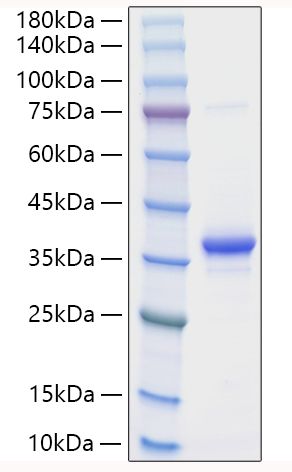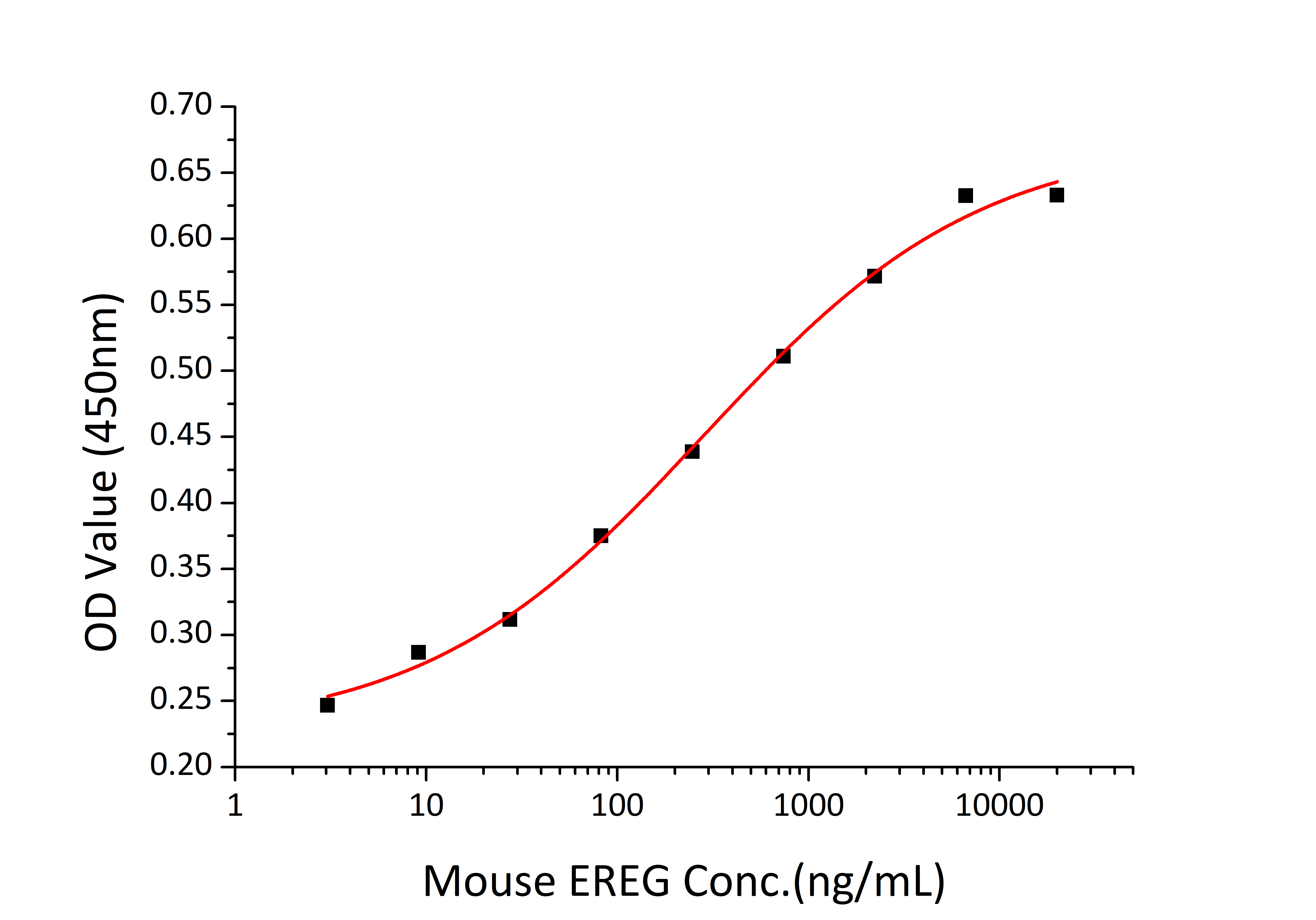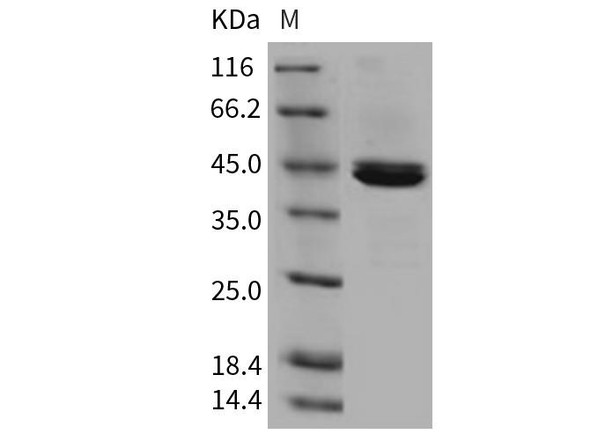Description
Recombinant Mouse EREG Protein
The Recombinant Mouse EREG Protein is a high-quality recombinant protein designed for murine biological research applications. This protein serves as an essential reagent in mouse model studies, comparative immunology research, and preclinical therapeutic evaluations, enabling scientists to investigate EREG biology and its relevance to human disease mechanisms through translational research approaches.
This product (SKU: RPCB1892) is produced using advanced expression systems and features a N-hFc tag for convenient detection and purification. The protein exhibits a calculated molecular weight of 31.36 kDa with an observed molecular weight of 35-40 kDa under denaturing conditions, achieving ≥ 90% as determined by SDS-PAGE.. Functional bioactivity has been validated through rigorous quality control assays, confirming its suitability for demanding research applications.
Key Features
| High Purity by Affinity Chromatography | |
| Mammalian & Bacterial Expression Systems | |
| High lot-to-lot consistency via strict QC |
| Product Name: | Recombinant Mouse EREG Protein |
| SKU: | RPCB1892 |
| Size: | 10 μg , 20 μg , 50 μg , 100 μg |
| Reactivity: | Mouse |
| Synonyms: | Proepiregulin, Cleaved into: Epiregulin, EPR,Ereg |
| Tag: | N-hFc |
| Calculated MW: | 31.36 kDa |
| Observed MW: | 35-40 kDa |
| Gene ID: | 13874 |
| Protein Description: | High quality, high purity and low endotoxin recombinant Recombinant Mouse EREG Protein (RPCB1892), tested reactivity in HEK293 cells and has been validated in SDS-PAGE.100% guaranteed. |
| Endotoxin: | < 0.1 EU/μg of the protein by LAL method. |
| Purity: | ≥ 90% as determined by SDS-PAGE. |
| Formulation: | Lyophilized from a 0.22 μm filtered solution of PBS, pH 7.4. |
| Bio-Activity: | Measured in a cell proliferation assay using Balb3T3 mouse fibroblast cells. The ED 50 for this effect is 140.58-562.31 ng/mL, corresponding to a specific activity of 1.78×10 3 ~7.11×10 3 units/mg. |
| Reconstitution: | Centrifuge the vial before opening. Reconstitute to a concentration of 0.1-0.5 mg/mL in sterile distilled water. Avoid vortex or vigorously pipetting the protein. For long term storage, it is recommended to add a carrier protein or stablizer (e.g. 0.1% BSA, 5% HSA, 10% FBS or 5% Trehalose), and aliquot the reconstituted protein solution to minimize free-thaw cycles. |
| Storage: | Store at -20℃.Store the lyophilized protein at -20℃ to -80 ℃ up to 1 year from the date of receipt. After reconstitution, the protein solution is stable at -20℃ for 3 months, at 2-8℃ for up to 1 week. |
Epiregulin (EREG) is a member of the epidermal growth factor family. Epiregulin (EREG) can function as a ligand of EGFR (epidermal growth factor receptor), as well as a ligand of most members of the ERBB (v-erb-b2 oncogene homolog) family of tyrosine-kinase receptors. Epiregulin (EREG) exhibit bifunctional regulatory properties: it inhibit the growth of several epithelial tumor cells and stimulated the growth of fibroblasts and various other types of cells. Epiregulin (EREG) bound to the EGF receptors of epidermoid carcinoma A431 cells much more weakly than did EGF, but was nevertheless much more potent than EGF as a mitogen for rat primary hepatocytes and Balb/c 3T3 A31 fibroblasts. These findings suggest that epiregulin (EREG) plays important roles in regulating the growth of epithelial cells and fibroblasts by binding to receptors for EGF-related ligands. Epiregulin (EREG) is the broadest specificity EGF-like ligand so far characterized: not only does it stimulate homodimers of both ErbB-1 and ErbB-4, it also activates all possible heterodimeric ErbB complexes.








